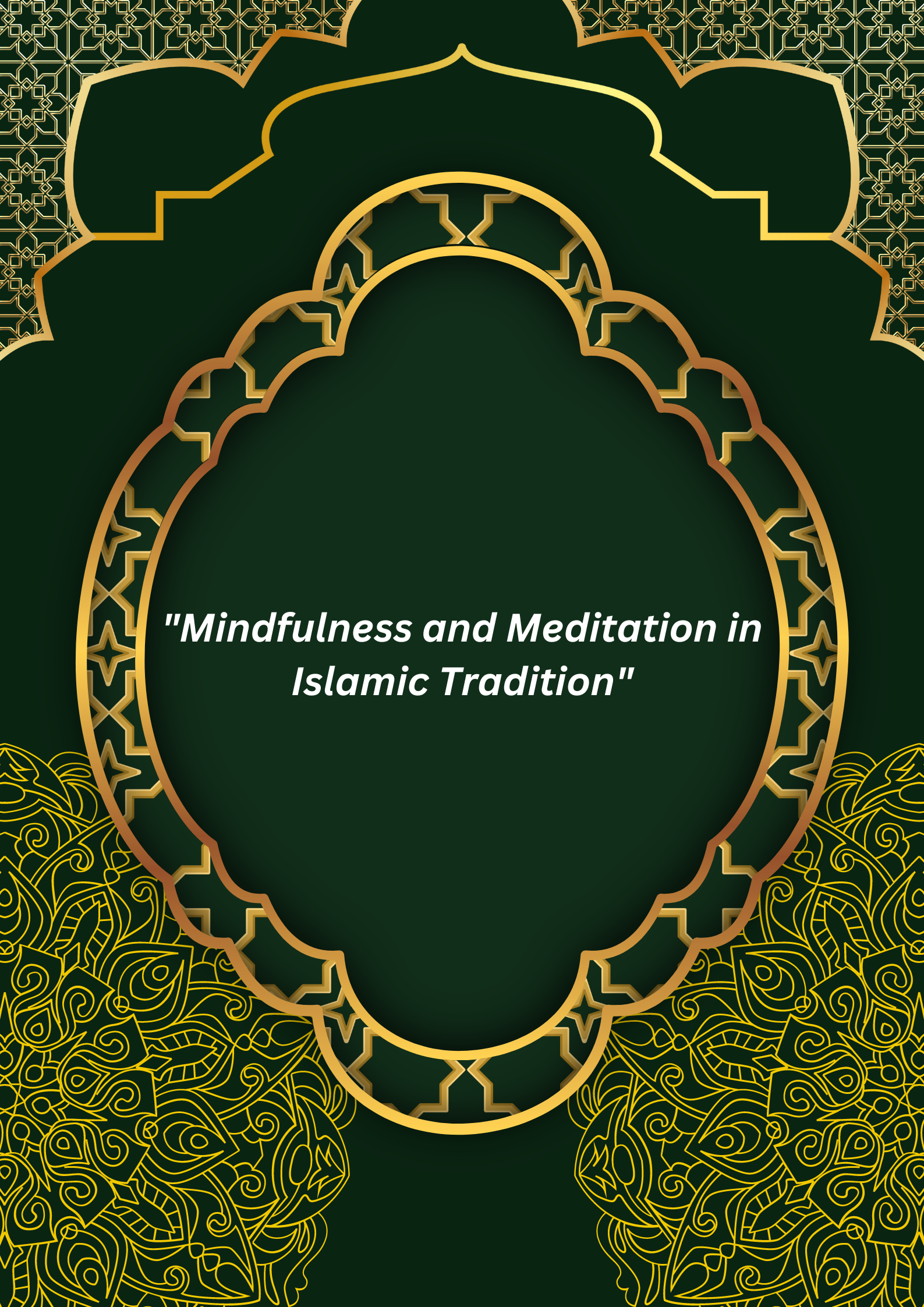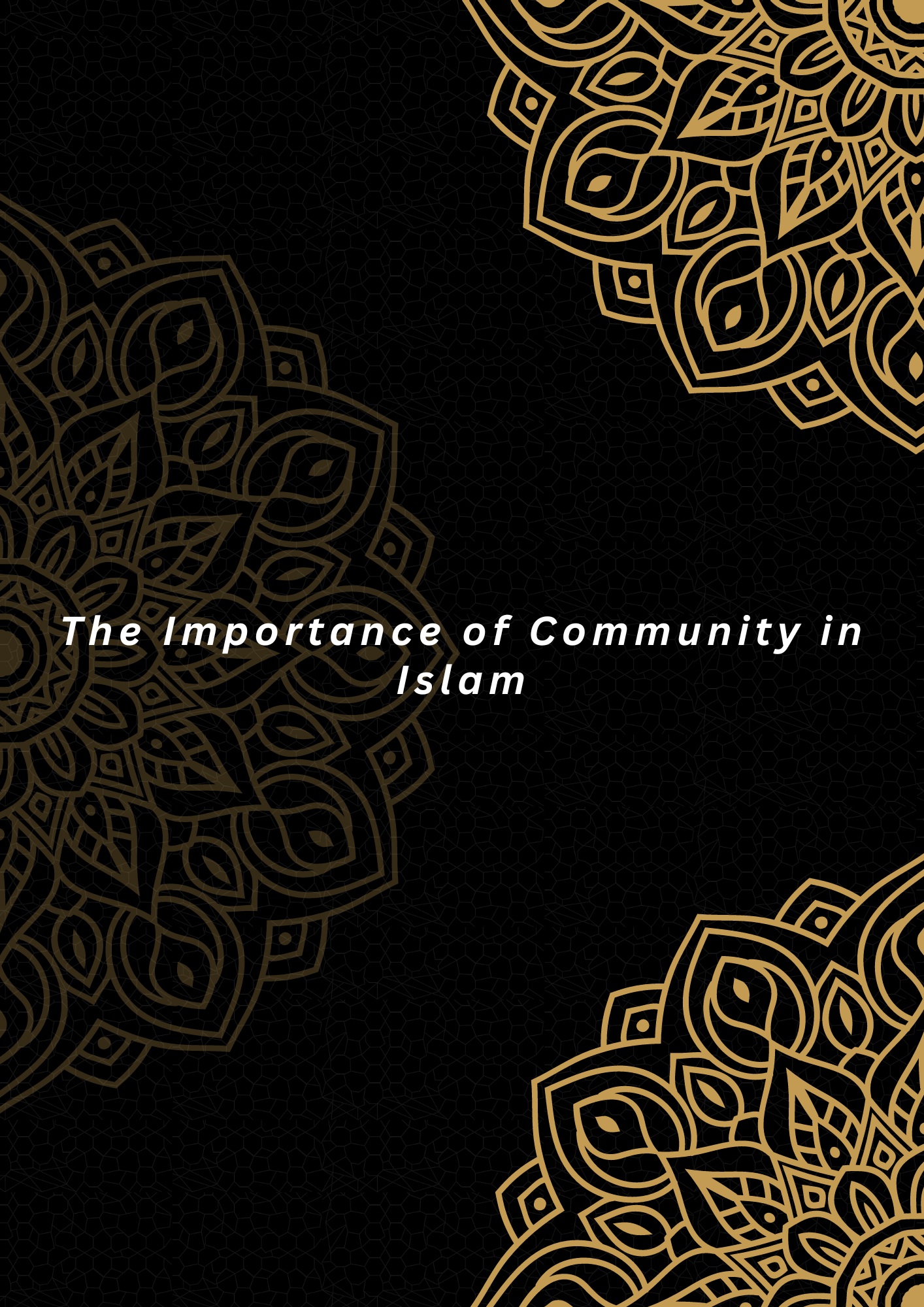Mindfulness and meditation, often associated with Eastern spiritual practices, hold a significant place within Islamic tradition as well. Rooted in the teachings of the Quran and the Hadith, these practices are integral to the spiritual life of a Muslim, fostering a deeper connection with Allah and promoting mental and emotional well-being. This article explores the concepts of mindfulness and meditation in Islam, their historical context, and their relevance in contemporary Muslim life.
Understanding Mindfulness in Islam
Mindfulness, or “Muraqabah” in Arabic, refers to the awareness and presence of mind that a Muslim maintains in their daily life. It is the practice of being constantly aware of Allah’s presence and being attentive to one’s thoughts, actions, and intentions. This state of consciousness is cultivated through regular acts of worship and reflection.
The Quran encourages mindfulness through verses that emphasize contemplation and awareness. Surah Al-Imran (3:191) states: “Who remember Allah while standing or sitting or [lying] on their sides and give thought to the creation of the heavens and the earth, [saying], ‘Our Lord, You did not create this aimlessly; exalted are You [above such a thing]; then protect us from the punishment of the Fire.'”
Historical Context and Practices
- Dhikr (Remembrance of Allah): Dhikr is a form of meditation that involves the repetitive recitation of Allah’s names and attributes, phrases of praise, and other devotional formulas. This practice helps Muslims maintain mindfulness of Allah throughout the day, fostering a deep sense of peace and spiritual connection. The Prophet Muhammad (peace be upon him) said, “The similitude of one who remembers his Lord and one who does not remember Him is like that of the living and the dead.”
- Salah (Prayer): Salah, the five daily prayers, is a structured form of meditation and mindfulness. Each prayer involves physical movements, recitations, and silent reflections that help Muslims focus their minds and hearts on Allah. The regularity and discipline of Salah serve as anchors in a Muslim’s daily life, promoting a continuous state of mindfulness.
- Tafakkur (Contemplation): Tafakkur involves deep reflection and contemplation on the signs of Allah in the universe, as well as introspection on one’s life, actions, and purpose. The Quran frequently invites believers to reflect on creation, life, and their relationship with Allah. This form of meditation enhances understanding, gratitude, and a sense of purpose.
- I’tikaf (Spiritual Retreat): I’tikaf is the practice of secluding oneself in a mosque for a specific period, usually during the last ten days of Ramadan, to focus entirely on worship, prayer, and contemplation. This spiritual retreat allows Muslims to disconnect from worldly distractions and immerse themselves in meditation and devotion.
Relevance in Contemporary Muslim Life
- Mental and Emotional Well-being: Mindfulness and meditation practices in Islam contribute significantly to mental and emotional well-being. By fostering a sense of inner peace and connection with Allah, these practices help alleviate stress, anxiety, and depression. The regular recitation of Dhikr, for example, has a calming effect, promoting tranquility and reducing mental clutter.
- Spiritual Growth: Engaging in mindfulness and meditation deepens a Muslim’s spiritual experience. It enhances their relationship with Allah, making their worship more meaningful and heartfelt. This spiritual growth is reflected in their daily conduct, increasing patience, compassion, and ethical behavior.
- Focus and Discipline: The discipline required for regular prayer and remembrance cultivates focus and self-control. This discipline extends to other areas of life, improving productivity, decision-making, and resilience. By grounding themselves in regular worship and reflection, Muslims can navigate life’s challenges with greater clarity and confidence.
- Community and Solidarity: Practices like Salah and Dhikr often involve communal participation, strengthening the bonds of community and fostering a sense of solidarity. Collective acts of worship and remembrance reinforce the shared spiritual journey, providing support and encouragement to individuals.
Practical Tips for Incorporating Mindfulness and Meditation
- Regular Dhikr: Set aside specific times each day for Dhikr. This can be done after the five daily prayers or at other convenient times. Use a misbaha (prayer beads) to keep count and stay focused.
- Mindful Salah: Approach each Salah with the intention of being fully present. Take a few moments before starting to clear your mind and focus on the act of worship. Concentrate on the meanings of the recitations and movements.
- Daily Reflection: Allocate time for daily reflection (Tafakkur). This could be in the form of journaling, contemplating the Quran, or simply sitting quietly and thinking about your day, your blessings, and your relationship with Allah.
- Spiritual Retreats: If possible, participate in I’tikaf or other spiritual retreats. Even outside of Ramadan, consider setting aside time for personal retreats where you can focus on worship and reflection without distractions.
Conclusion
Mindfulness and meditation in Islamic tradition are profound practices that nurture the spiritual, mental, and emotional well-being of Muslims. Through Dhikr, Salah, Tafakkur, and I’tikaf, Islam provides a comprehensive framework for cultivating a mindful and contemplative life. These practices not only deepen one’s connection with Allah but also enhance overall quality of life, promoting peace, discipline, and resilience. In the fast-paced modern world, the timeless wisdom of Islamic mindfulness and meditation offers valuable guidance for achieving balance and spiritual fulfillment.



